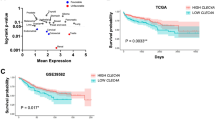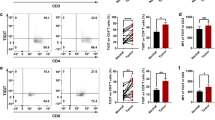Abstract
Objective: The Fas and Fas ligand (FasL) play an important role in maintaining immune privilege on malignant tumors. In present study, we investigated the expression of FasL in SW480 and LS174 human colon carcinoma cell lines and twenty primary colon carcinoma specimens. Methods: The expression of FasL in human colon carcinoma cell lines and primary colon carcinomas specimens was detected by immunohistochemistry and Reverse Transcription-PCR (RT-PCR). Results: We found that all of detected human colon carcinoma cell lines and primary colon carcinoma specimens constitutively expressed FasL at the mRNA and protein level. However, the expression of FasL was not found in normal colon epithelial cells. Conclusion: The expression of FasL may occur during malignant transformation from normal colon epithelial cells to colon carcinoma cells. Our results suggest that tumor cells kill cytotoxic T lymphocytes (CTLS) and natural killer (NK) cells by expression of FasL. It may be a new mechanism for tumor cells to escape the host’s immune surveillance. The expression of FasL may contribute to the formation of colon carcinomas.
Similar content being viewed by others
References
Itoh N, Yonehara S, Ishii A, et.al. The polypeptide encoded by the cDNA for human cell surface antigen Fas can mediate apoptosis [J]. Cell 1991; 66:233.
Suda T, Takahashi T, Golstein P, et al. Molecular cloning and expression of the Fas ligand: a novel member of the tumor necrosis factor family [J]. Cell 1993; 75:1169.
Takahashi T, Tanaka M, Inazawa J, et al. Human Fas ligand: Gene structure, chromosomal location and species specificity [J]. Int Immunol 1994; 6:1567.
Dhein J, Daniel PT, Trauth BC, et al. Induction of apoptosis by monoclonal antibody anti-APO-1 class switch variants is dependent on cross-linking of APO-1 cell surface antigens [J]. J Immunol 1992; 149:3166.
Walker PR, Saas P, Dietrich PY. Role of Fas ligand (CD95L) in immune escape: the tumor cell strikes back [J]. J Immunol 1997; 158:4521.
Gratas C, Tohma Y, Bamas C, et al. Up-regulation of Fas (APO-1/CD95) ligand and down-regulation of Fas expression in human esophageal cancer [J]. Cancer Res 1998; 58:2057.
Bennett MW, O’Connell J, O’Sullivan GC, et al. The Fas counterattack in vivo: apoptotic depletion of tumor-infiltrating lymphocytes associated with Fas ligand expression by human esophageal carcinoma [J]. J Immunol 1998; 160:5669.
Nagata S. Apoptosis by death factor [J]. Cell 1997; 88:355.
O’Connell J, O’Sullivan GC, Collins JK, et al. The Fas counterattack Fas-mediated T cell killing by colon cancer cells expressing Fas ligand [J]. J Exp Med 1996; 184:1075.
Hug H. Fas-mediated apoptosis in tumor formation and defense [J]. J Bio Chem 1997; 378:1405.
Nagata S. Fas ligand and immune evasion [J]. Nat Med 1996; 2:1306.
O’Connell J, Bennett MW, O’Sullivan GC, et al. The Fas counterattack: cancer as a site of immune privilege [J]. Immunol Today 1999; 20:46.
Yonehara S, Ishii A, Yonehara M. A cell-killing monoclonal antibody (anti-Fas) to a cell surface antigen co-downregulated with the receptor of tumor necrosis factor [J]. J Exp Med 1989; 169:1747.
Trauth BC, Klas C, Peters AM, et al. Monoclonal antibody-mediated tumor regression by induction of apoptosis [J]. Science 1989; 245:301.
Walker PR, Saas P, Dietrich PY. Tumor expression of Fas ligand (CD95) and the consequences [J]. Curr Opin Immunol 1998; 10:564.
Nichans GA, Brunner T, Frizelle SP, et al. Human lung carcinomas express Fas ligand [J]. Cancer Res 1997; 57:1007.
Hahne M, Rimoldi D, Schröter M, et al. Melanoma cell expression of Fas (APO-1/CD95) ligand: Implications for tumor immune escape [J]. Science 1997; 274:1363.
Strand S, Hofmann WJ, Hug H, et al. Lymphocyte apoptosis induced by CD95 (APO-1/Fas) ligand-expressing tumor cells: A mechanism of immune evasion [J]. Nat Med 1996; 2:1361.
Saas P, Walker PR, Hahne M, et al. Fas ligand expression by astrocytoma in vivo: maintaining immune privilege in the brain [J]? J Clin Invest 1997; 99:1173.
Shiraki K, Tsuji N, Shioda T, et al. Expression of Fas ligand in liver metastases of human colonic adenocarcinomas J]. Proc Natl Acad Sci USA 1997; 94:6420.
Buechner SA, Wernli M, Harr T, et al. Regression of basal cell carcinoma by intralesional interferon-alpha treatment is mediated by CD95 (APO-1/Fas)-CD95 ligand-induced suicide [J]. J Clin Invest 1997; 100:2691.
Steller H. Mechanisms and genes of cellular suicide [J]. Science 1995; 267:1445.
Dive C, Evans CA, Whetton AD. Induction of apoptosisnem targets for cancer chemotherapy [J]. Cancer Biol 1992; 3:417.
Refaeli Y, Van Parijs, London CA, et al. Biochemical mechanisms of IL-2 regulated Fas-mediated T cell apoptosis [J]. Immunity 1998; 8:615.
Mizutani Y, Okada Y, Fukumoto M, et al. Doxorubicin sensitized human bladder carcinoma cells to Fasmediated cytotoxicity [J]. Cancer 1997; 79:1180.
Jiang SH, Song MJ, Shin EC, et al. Apoptosis in human hepatoma cell lines by chemotherapeutic drugs via Fas-dependent and independent pathways [J]. Hepatology 1999; 29:101.
Author information
Authors and Affiliations
Corresponding author
Additional information
Biography: XING Bao-cai (1963–), doctor of medicine, associate professor, Department of Surgical Oncology, Peking University School of Oncology, majors in surgical oncology.
Rights and permissions
About this article
Cite this article
Xing, Bc., Wang, Y., Wimmenauer, S. et al. FasL expression in human colon carcinomas. Chin. J. Cancer Res. 14, 37–41 (2002). https://doi.org/10.1007/s11670-002-0008-5
Received:
Accepted:
Issue Date:
DOI: https://doi.org/10.1007/s11670-002-0008-5




